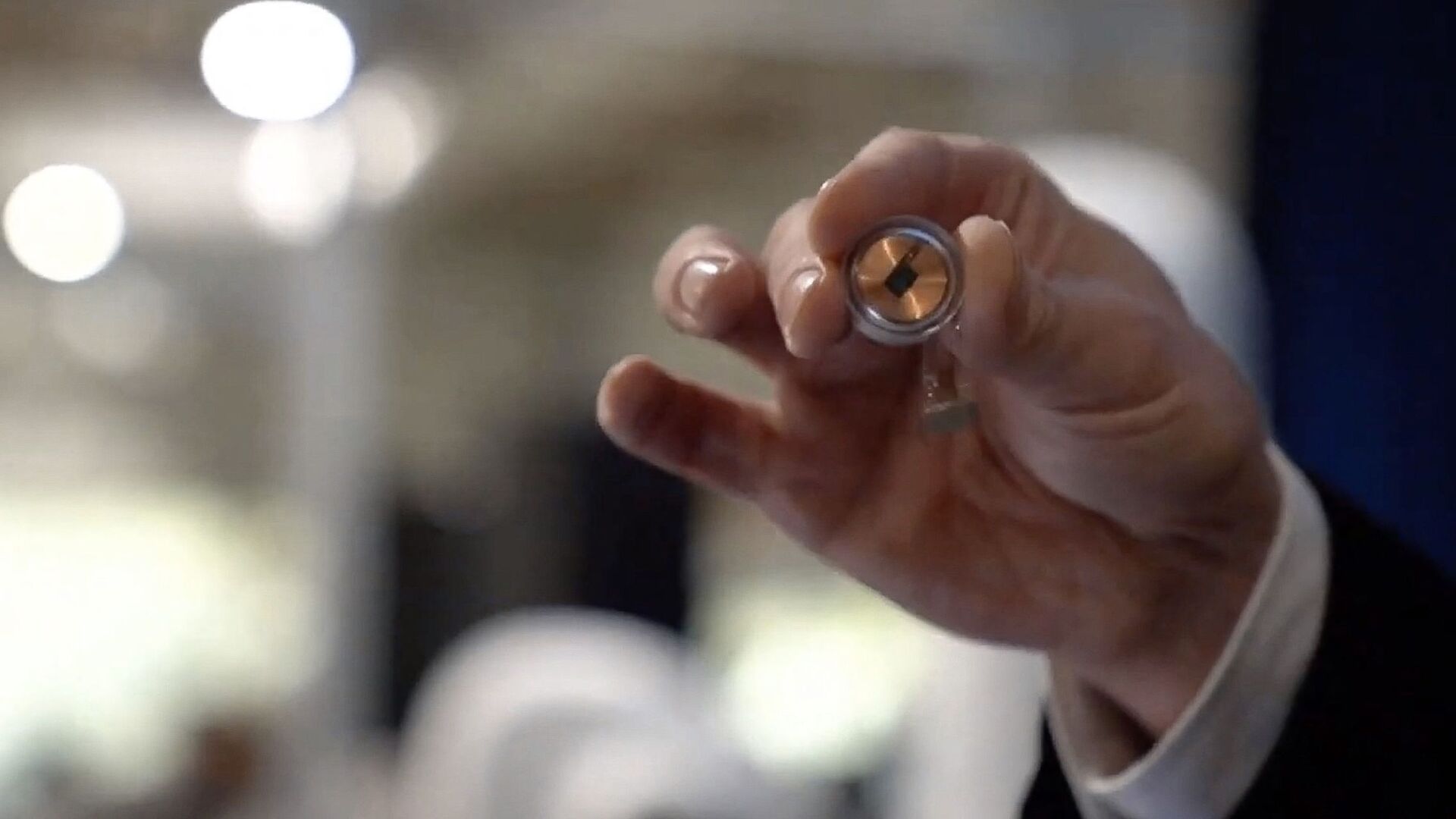https://sputniknews.in/20230526/elon-musks-neuralink-cleared-for-human-trial-of-brain-chips-2176357.html
Elon Musk's Neuralink Cleared For Human Trial of Brain Chips
Elon Musk's Neuralink Cleared For Human Trial of Brain Chips
Sputnik India
Elon Musk's start-up Neuralink has obtained approval from the American regulators to begin testing its brain implants on people.
2023-05-26T17:37+0530
2023-05-26T17:37+0530
2023-05-26T17:37+0530
elon musk
science & tech
science & tech
ai robots
artificial intelligence (ai)
monkeys
https://cdn1.img.sputniknews.in/img/07e7/05/1a/2180886_106:216:2363:1486_1920x0_80_0_0_117efcf6dd23363b02635d965c00c919.jpg
Elon Musk's start-up Neuralink has obtained approval from the American regulators to begin testing its brain implants on people.The billionaire's start-up aims to restore people's vision and mobility by connecting brains with computers. Its prototype, which is the size of a coin, has already been tested on monkeys and pigs.The company in 2022 also sought permission for the same. However, it was rejected on safety grounds, reported Reuters.Earlier, Musk suggested that the technology could help ease concerns about humans being displaced by artificial intelligence (AI).How Does Neuralink Technology Work?
Sputnik India
feedback.hindi@sputniknews.com
+74956456601
MIA „Rossiya Segodnya“
2023
Deexa Khanduri
https://cdn1.img.sputniknews.in/img/07e6/0c/13/138923_52:0:533:481_100x100_80_0_0_cadf23d341691fc65ff2b22fd1afe584.jpg
Deexa Khanduri
https://cdn1.img.sputniknews.in/img/07e6/0c/13/138923_52:0:533:481_100x100_80_0_0_cadf23d341691fc65ff2b22fd1afe584.jpg
News
en_IN
Sputnik India
feedback.hindi@sputniknews.com
+74956456601
MIA „Rossiya Segodnya“
Sputnik India
feedback.hindi@sputniknews.com
+74956456601
MIA „Rossiya Segodnya“
Deexa Khanduri
https://cdn1.img.sputniknews.in/img/07e6/0c/13/138923_52:0:533:481_100x100_80_0_0_cadf23d341691fc65ff2b22fd1afe584.jpg
synchron, blackrock, neurotech, clinical trials, paralyzed man, robotic hand, barack obama, elon musk's start-up neuralink, neuralink, brain chip, fda's approval, artificial intelligence, monkey, synchron,
synchron, blackrock, neurotech, clinical trials, paralyzed man, robotic hand, barack obama, elon musk's start-up neuralink, neuralink, brain chip, fda's approval, artificial intelligence, monkey, synchron,
Elon Musk's Neuralink Cleared For Human Trial of Brain Chips
Deexa Khanduri
Sputnik correspondent
Synchron and Blackrock Neurotech have already implanted devices in at least 42 people worldwide for clinical trials, including a paralyzed man who used a robotic hand to fist-bump Barack Obama in 2016.
Elon Musk's start-up Neuralink has obtained approval from the American regulators to begin testing its brain implants on people.
The billionaire's start-up aims to restore people's vision and mobility by connecting brains with computers. Its prototype, which is the size of a coin, has already been tested on monkeys and pigs.
"We are excited to share that we have received the FDA's approval to launch our first-in-human clinical study," Neuralink said in a post on Twitter.
The company in 2022 also sought permission for the same. However, it was rejected on safety grounds, reported Reuters.
Earlier, Musk suggested that the technology could help ease concerns about humans being displaced by artificial intelligence (AI).
How Does Neuralink Technology Work?
In 2022, after installing a chip in a monkey's brain, the company showed that the animal was playing ping pong.
It explained then that a robot-like sewing machine installs the microchip inside the brain, leaving a small scar.
During surgery, a small chunk of the skull is removed, and it connects the thread-like electrodes to target brain regions. The surgery is done in 30 minutes, and a patient can be discharged the same day.
The microchip processes and transmits neural signals that can be transmitted to devices like a computer or a phone via Bluetooth.
In July 2021, Synchron received FDA approval and tested its technology on four patients in Australia who send text messages with their brains without using any keyboards or phones.


